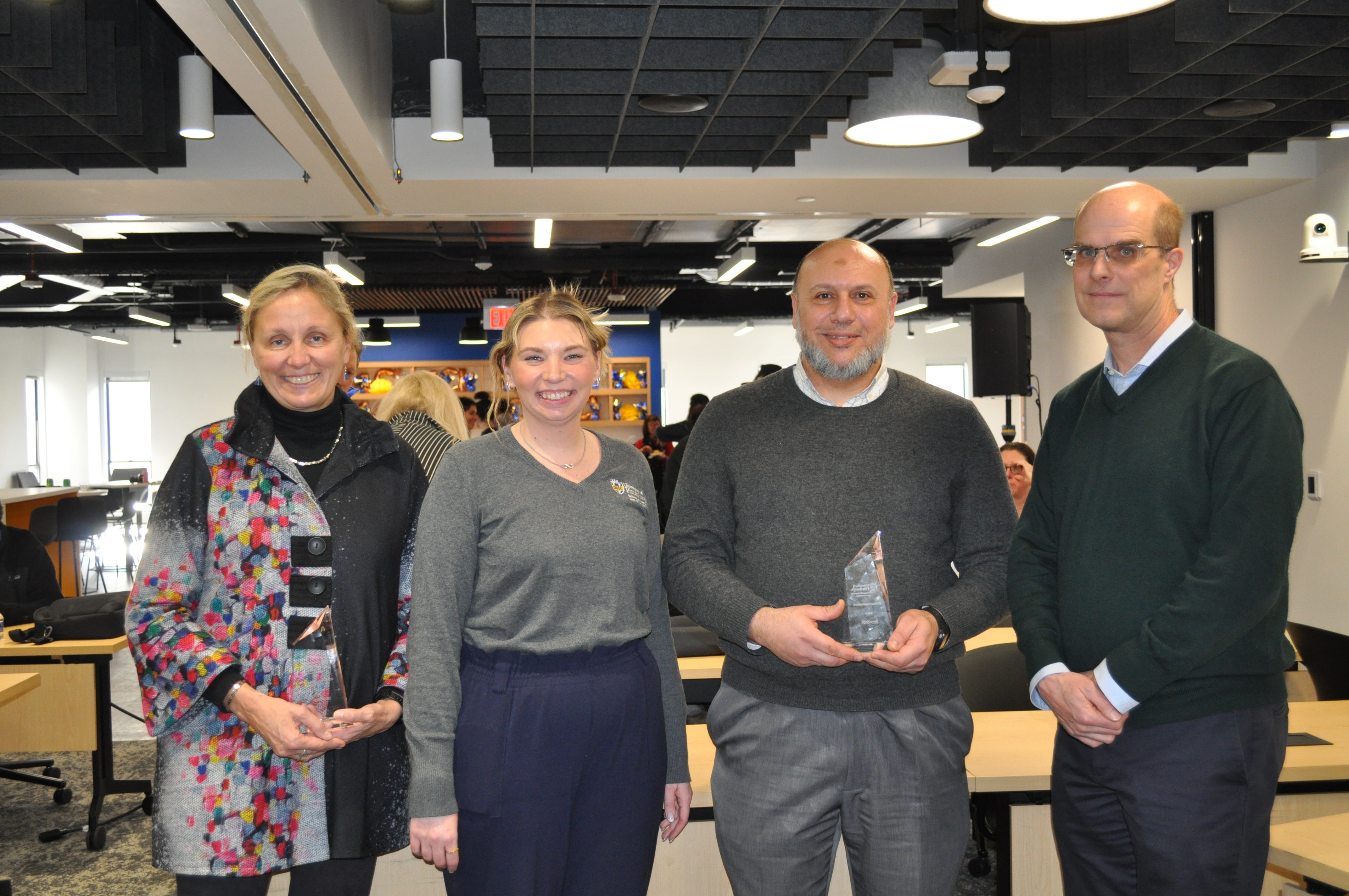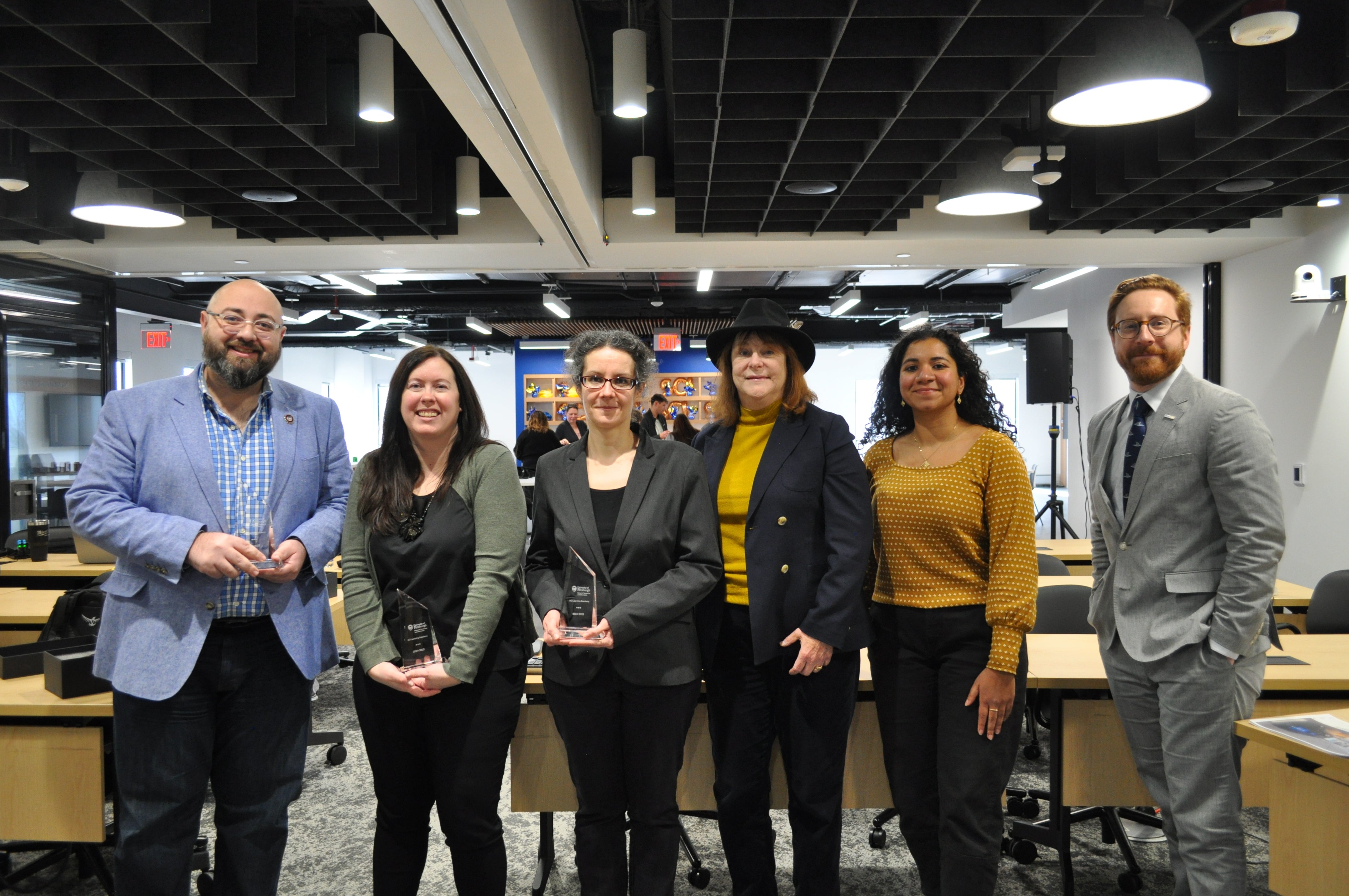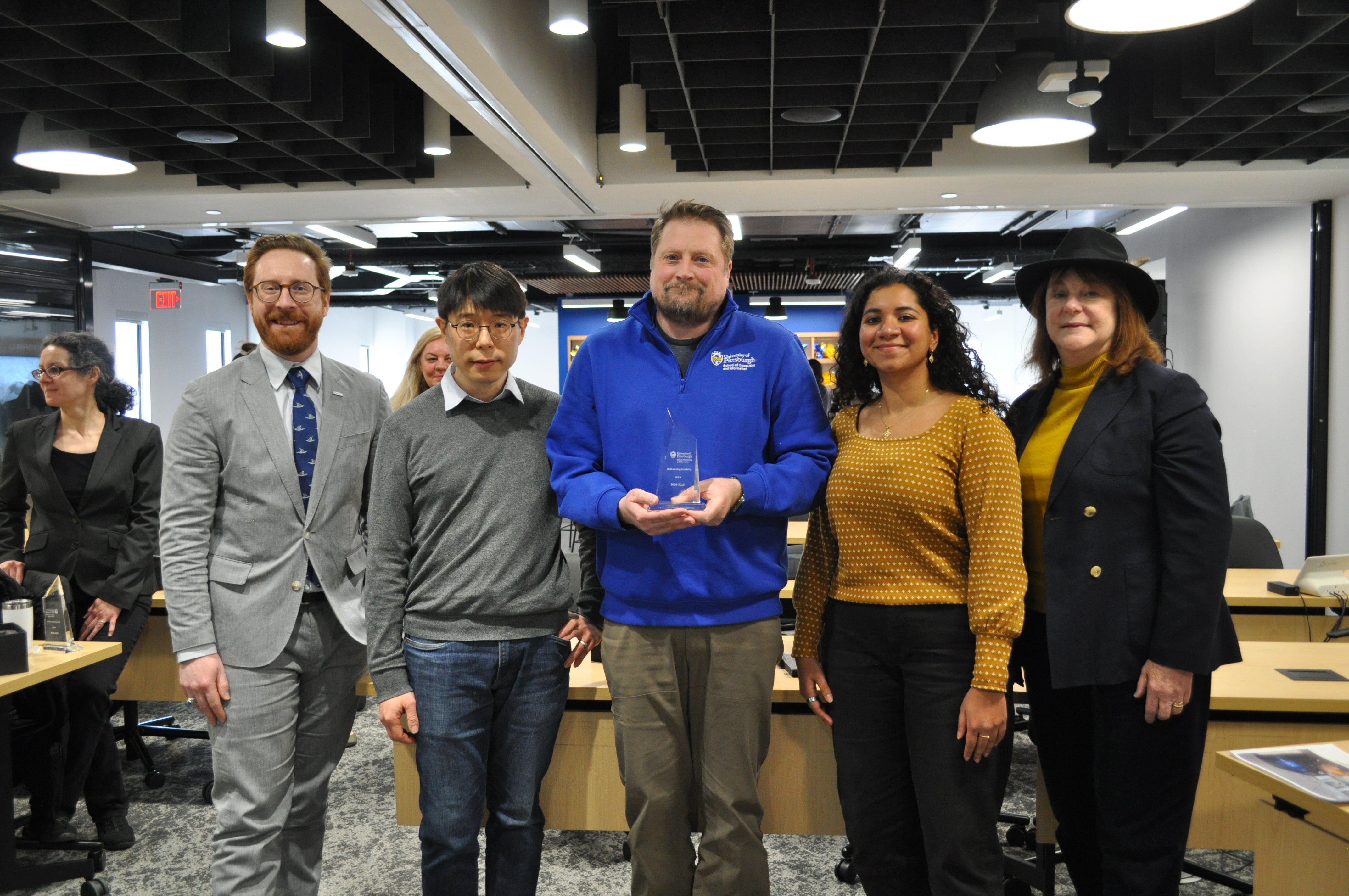May 12, 2025
 The School of Computing and Information (SCI) hosted its second annual Learning Academy “Shark Tank” pitch session this spring, where SCI faculty and staff pitched project ideas to better the school. The Learning Academy empowers faculty and staff to take on leadership positions, giving them an opportunity to plan, design, and present a proposal while also directly impacting students and their communities.
The School of Computing and Information (SCI) hosted its second annual Learning Academy “Shark Tank” pitch session this spring, where SCI faculty and staff pitched project ideas to better the school. The Learning Academy empowers faculty and staff to take on leadership positions, giving them an opportunity to plan, design, and present a proposal while also directly impacting students and their communities.
At the end of the Feb. 28 pitch session, each team received various amounts of funding to put their plans into action. This year, the project awarded the most funding was Student-Friendly Spaces, created by Lynnsey Doane, director of student success, Sherif Khattab, a teaching assistant professor with the Department of Computer Science (CS), and Susan Orr, director of communications and media.
Their project revolves around creating more spaces on campus that are accessible, foster a sense of belonging, and support success for SCI students. One area they chose to implement these changes is the hallways of the fifth and sixth floors of Sennott Square. Targeted and meaningful improvements – like adding more seating, colorful wall decals, and better lighting – may seem small, but they can make a world of difference in how students experience their surroundings.
“A particularly meaningful moment was hearing a student express how difficult it was to find a space where they felt truly welcome and comfortable on campus. Knowing that this project could change that experience for future students was incredibly inspiring,” said Doane.
By gaining insight through conducting surveys and speaking directly to students about their experience, the team was able to find out what areas on campus are most important to focus on and what changes will make the most impact. Now, the next steps of the process are to finalize the design and order the supplies – soon, students will be able to see the benefit of the Learning Academy directly in their community.
The second place project, Peer Student Mentoring, revolves around pairing students up with fellow peers to ensure they have someone to go to for support in their career beyond just an advisor meeting.
 Emily Bennett, SCI’s manager of experiential learning; Adriana Kovashka, chair of computer science; and Ahmed Ibrahim, a teaching associate professor with DINS – who together led the proposal – focused on students’ individual experiences and used data to identify gaps in their sense of belonging at Pitt. For example, 57% of women in computer science agree with the statement “I feel isolated”, whereas this agreement level is only 30% at similar institutions. This allowed the team to be able to specify the direct areas of need in the student body and address them in a way that is precise and meaningful.
Emily Bennett, SCI’s manager of experiential learning; Adriana Kovashka, chair of computer science; and Ahmed Ibrahim, a teaching associate professor with DINS – who together led the proposal – focused on students’ individual experiences and used data to identify gaps in their sense of belonging at Pitt. For example, 57% of women in computer science agree with the statement “I feel isolated”, whereas this agreement level is only 30% at similar institutions. This allowed the team to be able to specify the direct areas of need in the student body and address them in a way that is precise and meaningful.
“As someone who works in SCI student services, I think it’s incredibly important that students feel that they belong and are receiving credible advice to succeed in this environment. Peer-based mentoring can provide that type of experience,” said Bennett.
The Learning Academy’s third place project was the Honors College Strategic Partnership, proposed by Wonsun Ahn, a teaching assistant professor with CS, and Tiffany Holmes, SCI’s budget and finance manager. Jacob Biehl, an associate professor with CS and the Department of Information Culture and Data Stewardship (ICDS) and Dmitriy Babichenko, a clinical professor with the Department of Informatics and Networked Systems (DINS) also supported the project. They proposed that strengthening ties between SCI and the David C. Frederick Honors College would give students greater access to honors resources – like infrastructure and study abroad programs – while also building the reputation and prestige of SCI.
These projects allow faculty to develop their career in a new and unique way, giving hands-on experience in strengthening relationships with the students who they work with. In the Honors College Strategic Partnership project, being able to interpret data, work with other organizations, and change the plan as new challenges came up was an important learning experience for the team members.
“I am teaching faculty, so it is easy to get siloed within the courses I am teaching… Involving myself in a broader mission empowered me to talk to people that I usually don't talk to and dig into data that I didn't know was even available,” said Ahn.
 An emphasis on community, mentorship, and meaningful change carried throughout the event. This year's "Shark Tank" advisors - Nate Homitsky (SCI '07, KGSB '16), VP of Information at Aerotech, Inc.; Denise Callihan (SCI '92G), Manager, library Shared Services at PPG Industries; and Twesha Mitra (SCI '18), Software Engineer at NetApp - also exemplified this sense of community and mentorship
An emphasis on community, mentorship, and meaningful change carried throughout the event. This year's "Shark Tank" advisors - Nate Homitsky (SCI '07, KGSB '16), VP of Information at Aerotech, Inc.; Denise Callihan (SCI '92G), Manager, library Shared Services at PPG Industries; and Twesha Mitra (SCI '18), Software Engineer at NetApp - also exemplified this sense of community and mentorship
“SCI’s Learning Academy was created so faculty and staff had a more direct way to transform our school, whether their projects apply to students, programs, or our spaces,” said Dean Bruce R. Childers. “Now, we are sharing our Learning Academy practices with others at Pitt, showing how the innovations at SCI help transform and connect people across the University.”
Read more about the Learning Academy program.
